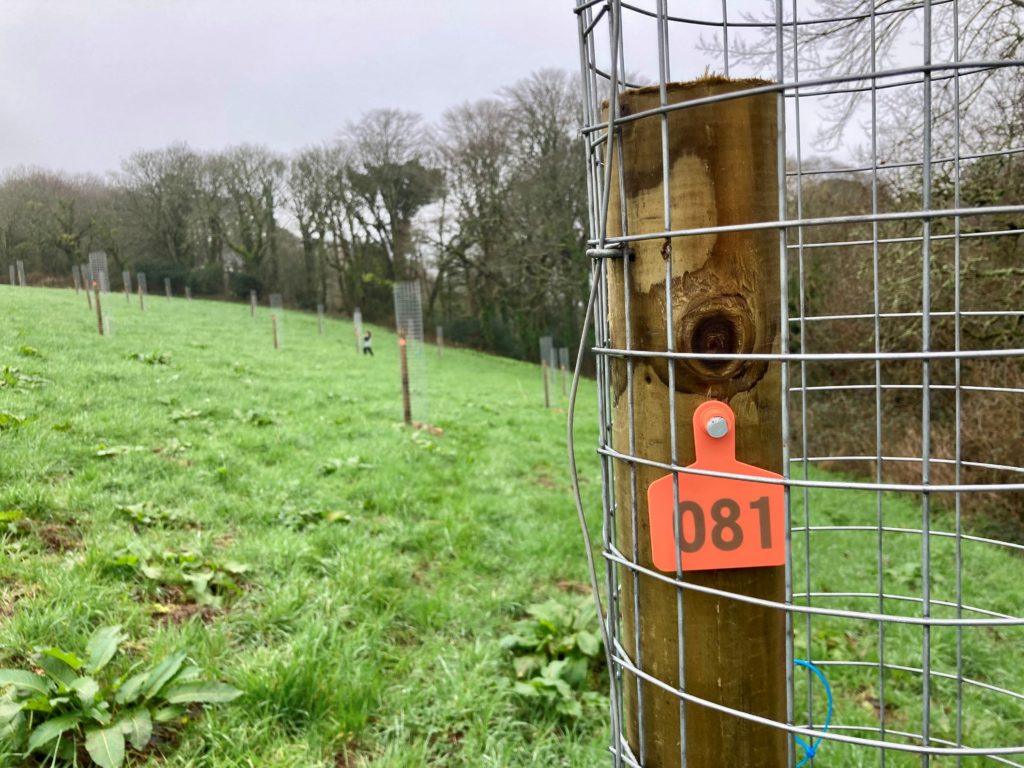Some Interesting Apples (SIA) is a project co-founded by William Arnold and James Fergusson, the primary aim of which is to record and, where characteristics make desirable, preserve wilding apples (i.e., Malus domestica growing on their own roots as the result of a discarded core). Having grown and often thrived in seemingly unfavourable circumstances, these trees present opportunities to propagate hardy novel cultivars, something of ever-increasing relevance in an erratic climate. As warmer winters and drier summers threaten the viability of traditional UK heritage varieties, the ability of M. domestica to adapt makes apple wildings a potentially valuable resource for future food production.
Since 2019 SIA has located and mapped over 600 unique apple wildings in Cornwall’s hedges, verges and marginal lands, identifying each tree through a unique what3words tag. The project has worked with Kestle Barton rural arts space to host three Wild & Seedling public taste trails, which fed into selection of promising novel cultivars. In 2022 SIA began to work with Caitlin DeSilvey of the Environment and Sustainability Institute at the University of Exeter’s Penryn Campus to develop ideas for shared research. A blossom time workshop and fieldtrip in April 2023 sparked discussion about propagating SIA wildings in a dedicated orchard. Following this event, SIA worked together with the Lizard and Penrose National Trust team to secure support from Forest for Cornwall for a new orchard of selected wildings – The Wilding Mother Orchard on National Trust land at Penarvon, Helford (a sister site to the National Trust’s Mother Orchard at Cotehele). In February 2024 80 apple rootstocks (MM111, M26 and M. sylvestris) were planted out at the site and grafting of the wilding scions began a few weeks later. The National Trust and the SIA team will jointly manage and maintain the orchard as a community and research resource.
The Wilding Mother Orchard is the first orchard in the UK dedicated to the propagation of wilding apples—no previously known cultivars will be included, and apples grown from seed will be included only if they are descended from known wildings. The project is currently working to secure funding for ongoing research, including genetic fingerprinting of the selected wildings and participatory activities to address the problem of plant blindness. The University of Exeter DEES Strategic Research Fund has supported the labelling of the orchard to facilitate future research at the site. Follow Instagram @someinterestingapples for updates about the project and opportunities and to get involved.

Hi, this is a comment.
To get started with moderating, editing, and deleting comments, please visit the Comments screen in the dashboard.
Commenter avatars come from Gravatar.